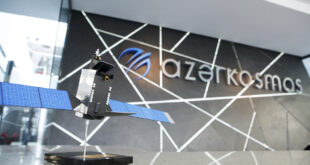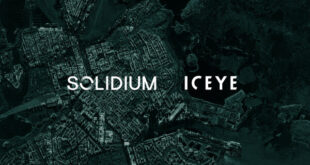by Omkar Nikam
 Space technology has become an integral part of global commercial industries and as a result several nations are keen on developing space capabilities for commercial, civil, and military purposes. Australia, China, France, Germany, India, Russia, and the United States are some of the most prominent players in the space industry; with China and India being at the forefront of the emerging space nations line up. To receive more insights on the unique capabilities of other emerging space nations, let’s take a deep look into the following:
Space technology has become an integral part of global commercial industries and as a result several nations are keen on developing space capabilities for commercial, civil, and military purposes. Australia, China, France, Germany, India, Russia, and the United States are some of the most prominent players in the space industry; with China and India being at the forefront of the emerging space nations line up. To receive more insights on the unique capabilities of other emerging space nations, let’s take a deep look into the following:
Azerbaijan
Azerbaijan is one of the most recent countries to boost its space capabilities in both satellite communication and the earth observation segment. The Azerbaijan National Aerospace Agency was formed in 1992 and from 2006 started operating under the Ministry of Defence Industry of Azerbaijan. Which further led to the formation of Azercosmos in 2010, a government satellite operator. Currently, Azercosmos operates two communication and one earth observation satellite. Considering the country’s ambitious plans in expanding digital initiatives and its recent movements in the communications markets, Azerbaijan will be on key players in the Caspian Sea to create a strong foot hold in the space technology.
Australia
Pacific is one most intriguing regions of the world and potentially a key spot for deploying satellite-based earth observation applications in the recent times. And Australia is one of the players in the region that has capacity to amplify the use of space solutions and services. Australian Space Agency was formed in 2018 but the country already has roots in the space market through private companies like Optus, which currently operates a fleet of communication satellites. With the rising space capabilities, Australia is emerging as one of the competitive nations in the pacific with a key focus on commercial and military applications.
Japan
From communications to asteroid sample return missions, Japan has been pushing boundaries in the space industry before New Space technologies became a household trend. SKY Perfect JSAT Group has been one of the country’s leading satellite operators. Japan’s historical footprint in the space and satellite missions has helped the country partner and collaborate globally for international missions. Astroscale, Axelspace Corporation, iSpace, and Warpspace are some of the leading private New Space companies operating in Japan.
Norway
The Nordic region generated lot of interest among space nations in the past few years. Companies like OneWeb and SpaceX’s Starlink are also looking to capture the communications market in the North Pole. Norway remains the key player in the region alongside Finland, Sweden, and Denmark. Andøya Space, Norwegian Space Agency, Telenor, and Kongsberg’s space and satellite division are the key players spearheading space and satellite missions in Norway. Recently, Rocket Factory Augsburg (RFA), a German launch service provider, signed launch site contract with Andøya Space. Considering these developments, Norway will soon emerge as one of the most competitive players in the European space and satellite market.
South Korea
The United States recently lifted missile restrictions on South Korea. This move is creating plethora of opportunities for the country to boost its space capabilities. South Korea’s space agency, Korea Aerospace Research Institute, was founded in 1989 and since the carried several space and satellite missions. KT Sat, subsidiary of KT Corporation, is one of the leading satellite operators in the country. Though several space research activities were carried out by South Korea for decades, the country is now experiencing boost in its capabilities due to lifting of restrictions and its new commercial strategies. Hanwha Group’s defence division, a South Korean business conglomerate, is at the forefront of the investment in low earth-orbit (LEO) satellite constellation. The company recently invested US$300 million in UK’s leading LEO satellite operator, OneWeb. While the country is still navigating for opportunities to develop its capabilities, it is by far safe that South Korea will soon align itself in the space sector with the countries like India, China, and Japan.

Omkar Nikam is an independent space and satellite consultant based in Strasbourg, France. As one of the leading satellite experts in the European market, Omkar specializes in providing market research, analysis, and consulting services for several upstream and downstream space/satellite companies. Omkar also manages an online research and analysis portal, Access Hub, providing a critical analysis on the current developments in the space and defence industry.
In his decade long career path, Omkar has spearheaded extensive consulting and market research projects for European and American companies. As an independent professional, he consistently manages upstream satellite communications market studies report for private enterprises with an emphasis on European, Latin American, African, and Asian satellite market. Simultaneously, with a strong foothold in technology and business journalism, Omkar also provides an extensive editorial and communication services for the space and satellite companies. He can be reached at: www.oknikam.eu





